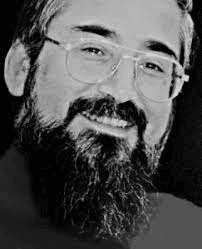Passing of Archbishop Zareh Aznavorian (April 30, 2004)

Archbishop Zareh Aznavorian faithfully served the Armenian Apostolic Church as an ordained celibate priest for 38 years, most of which was spent at the Catholicosate of the Holy See of Cilicia. He was an eminent teacher at the Theological Seminary, a noted composer of both religious and secular music, a gifted scholar, a Bible translator, and an author of textbooks and commentaries. He was considered to be one of the most noted biblical scholars within the Armenian Church.
He was born Minas Aznavorian in 1947 in Beirut and received his elementary education at the Yepremian School of St. Hagop Church. In 1960 he was admitted to the Seminary of the Great House of Cilicia and ordained deacon in 1963 by Catholicos Khoren I.
In 1966 he took his celibate vows and was ordained priest by Bishop Karekin Sarkissian (then Catholicos Karekin II of blessed memory), who renamed him Zareh, in memory of late Catholicos Zareh I, who had passed away three years before. He became choirmaster at the St. Gregory the Illuminator Cathedral of Antelias and assistant dean at the Seminary in 1966-1969, while he also followed music courses at the State Conservatory of Lebanon. He was also a teacher at the Mardikian School.
He submitted his thesis “St. Nerses of Lambron: His Life and Church Reform” and received the rank of Vartabed in 1969. He continued his higher education in Rome, where he followed studies of patristics, theology and Church history at the Oriental Institute, and graduated with a B.A. in Theology in 1972.
Upon his return, he went back to the position of assistant dean at the Seminary, teaching theology, Armenian language, Biblical interpretation, and introduction to the New Testament. He was one of the founders of the “Shnorhali” choir of the Catholicosate. He was editor of Hask, the monthly of the Catholicosate, in 1975-1976.
In 1977 he was designated Catholicosal Vicar of Cyprus and elected Prelate in 1979. In May 1980 he was elevated to the rank of Dzayrakooyn Vartabed and consecrated bishop the next day. During six years, he engaged in the renewal of the Prelacy, which had been badly affected by the Turkish invasion of 1974. In 1983 Bishop Zareh returned to the Holy See and for the next two decades participated actively in monastic life. His sermons became an inspiration for the faithful and his Christian virtuosity was exemplary for his spiritual brothers and the people. He was director of Christian Education at the Catholicosate and in the 1990s directed the Bird’s Nest orphanage and the Kayanian sisterhood. He was elevated to the rank of Archbishop in 1995.
He translated the New Testament from Classical Armenian and the Biblical languages into Western Armenian in collaboration with the Bible Society. His translation of the Old Testament, unfortunately, remained unfinished and it is being continued by one of his collaborators, Archbishop Oshagan Choloyan.
He prepared collections of sharagans in Western notation and composed musical pieces, as well as a Canon for the Martyrs of the Armenian Genocide (1990), where he wrote:
Today our fragmented land, Armenia, leaps for joy
on this celebration of the feast of the Martyrs of April,
for their relics scattered in its every parcel
herald the fulfillment of the hope
of a new Spring of life.
Through their prayers, Lord, raise it up!
He wrote many works of religious, theological and Armenological contents, including a three-volume manual of Classical Armenian for easy learning (1986-1987, 2005), a critique of Jehovah’s Witnesses (1992), and other titles, many of which were posthumously published: “The Armenian Church in the Twentieth Century and the Eve of the Twenty-First Century” (2005); “The Bible and Us” (2005); “Light and Communion” (2005), “To See God” (2014); “Commentary of the Nicene Creed” (2016); “History of Commentary” (2016); “Nerses of Lambron and His Church Reforms” (2017); “Musical Heritage” (2018); “Commentary of the Pentateuch” (2019), etcetera. An abridged version of his commentary of the Nicene Creed was published by the Eastern Prelacy in a bilingual version including an English translation by Archdeacon Shant Kazanjian in 2013.
The saintly and learned Archbishop Zareh Aznavorian passed away prematurely after a long illness at the age of 57, on April 30, 2004. His Holiness Aram I conducted the funeral rites on May 3. He is buried at the Zarehian mausoleum in the Catholicosate.
